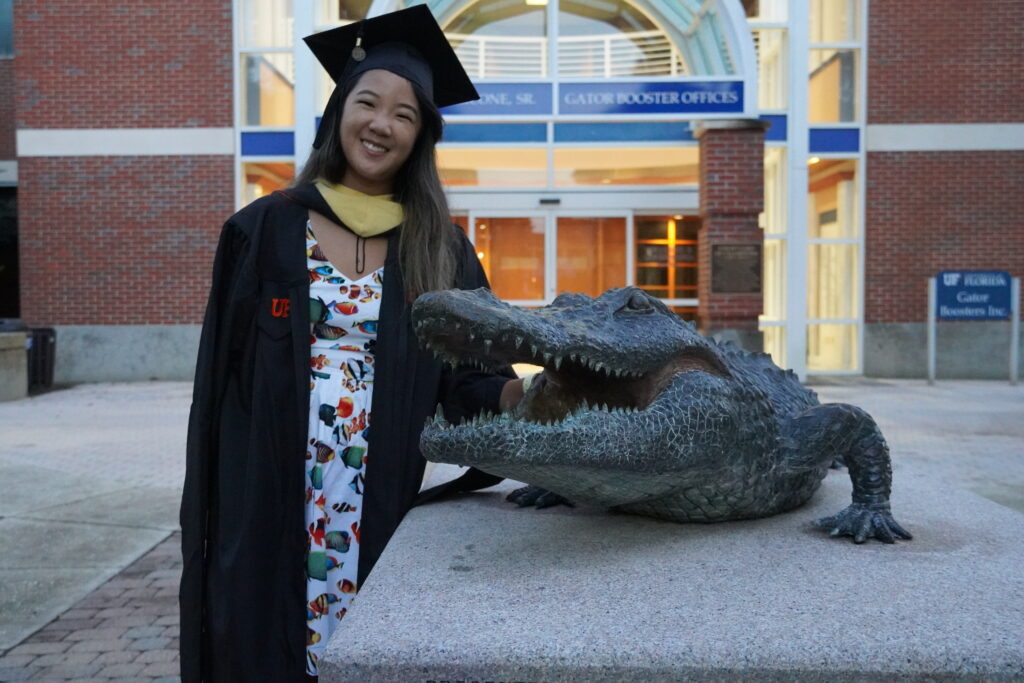Hello and welcome to my blog! In this section, I hope to post about science, graduate school, and life in general. This post is an overview about myself and my journey to become a marine scientist. My marine science journey started at a young age since I grew up in South Jersey and frequently went down to the shore over the summer. I was always curious about the ocean and loved playing in it! I knew I didn’t want to stay in the Jersey area for undergrad, so I applied to a bunch of out-of-state schools and decided to go to the University of Rhode Island (URI) and major in Marine Biology there. Shortly after starting at URI, I picked up a second major in Geological Oceanography as well as a minor in Underwater Archaeology (mostly because it sounded fun!). At URI, I got my open water SCUBA certification during my freshman year and haven’t stopped diving since! I got the opportunity to continue my studies and advance my dive certification and experience by studying abroad in Bermuda at the BIOS station for a semester. Here, I was able to conduct research on the impact of water flow on the community metabolism of Porites astreoides and got my AAUS scientific diver, advanced, and rescue SCUBA certifications. After my semester abroad, I came back to URI and got my Dive Master where I helped teach 10+ open water courses and 2 AAUS Scientific Diver courses. I also decided to pursue research experience when I got back to URI and aided a master student in her thesis research and conducted my own side projects on community abundances and oyster nitrous oxide emissions. These experiences were a large help in determining where I wanted my career to go, and without them, I’m not quite sure what I would be studying now! I knew I wanted to continue my education in marine sciences (with an end goal of becoming a professor) and applied to graduate schools with research spanning a broad range. Unfortunately, I was not accepted into a program due to a lack of funding with some prospective advisors and my overall lack of understanding of how the grad school process worked as a first-generation college grad.
Luckily after graduating from URI, I secured a job interning in a chemistry lab at a wastewater treatment plant in South Jersey and was later hired on as a full-time Lab Technician. Working here helped to hone and expand my laboratory skills, but the monotonous work of a regulatory lab didn’t excite me and I knew I wanted to go back into research based science. I then applied for graduate school again and was accepted into a couple of programs. After getting married to my high school sweetheart, my husband and I packed up and moved to South Florida for me to start a Master’s at the University of Florida’s Tropical Research and Education Center (UF TREC).
While at UF, the pandemic started which severely altered my research plans. Although it wasn’t the experience I had hoped for, I was able to complete my Master’s degree with a research focus on oyster aquaculture and oyster reef sediment denitrification rates. Here, I gained many valuable skillsets, life-long friends, and got to do some field work! Towards the end of my time at UF, I decided to switch the coastal ecosystem from oysters to corals (Since 1. I am allergic to oyster and 2. in my opinion there was more developing and interesting research for coral nitrogen cycling) and applied to graduate schools again and received offers from almost all I applied for. My husband and I decided to pack up again and move to Boston where I am now studying nitrogen cycling in corals at Boston College in an awesome lab and finished up my 1st year of my PhD! I’m super excited to share my journey and share/make resources for those who have no mentor to guide you into the marine science field and graduate school. Feel free to reach out to me if you have any specific questions!

